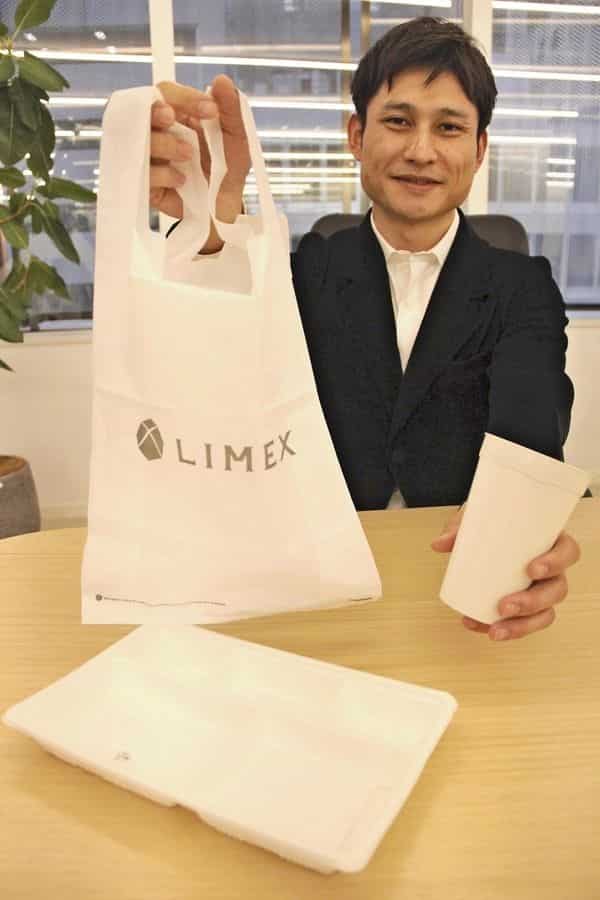Japanese manufacturers plastic alternatives - Arhive
Japanese manufacturers seek to meet demand for plastic alternatives Japanese manufacturers plastic alternatives

The Yomiuri Shimbun
Bags and a cup made from LIMEX, a new alternative to plastic
The Yomiuri ShimbunRaw material manufacturers are searching for alternatives to plastic as restaurants and retailers reduce their reliance on plastic products amid global concern over polluted oceans. Companies from different industries have begun to view the trend as a new business opportunity and are making inroads into the burgeoning market.
The nation’s leading paper manufacturer, Oji Holdings Corp., will start producing food packaging made of paper at the end of January. The product’s surface will be coated with special chemicals to prevent oxygen and liquid from seeping in and keep the food fresh. Nippon Paper Industries Co. is also gearing up to produce water-resistant paper straws. The paper industry hopes that the movement to replace plastic will bring new demand and help offset sliding demand for paper. Japanese manufacturers plastic alternatives
Meanwhile, material makers that produce plastic products have begun to focus on biodegradable plastic. Mitsubishi Chemical Corp. began selling biodegradable plastic for cups in October, and is currently developing straws and other products made from the material. Also in October, Toyobo Co. began producing biodegradable resins on commission from U.S. chemical giant DuPont.
Biodegradable plastic costs several times more than regular plastic to produce. According to a European industry group, biodegradable plastic comprises less than 1 percent of all plastic produced, but the figure is projected to increase by more than 20 percent in the next five years.
Companies outside the paper and plastic industries are also entering the market for plastic alternatives. Last year, Itochu Corp. and Toppan Printing Co. entered capital and business tie-ups with TBM Co., a start-up that developed a new recyclable material made from limestone called LIMEX. TBM has patented the material in more than 30 countries, including Japan, the United States and China. LIMEX products have already been used in leading hotel chains. Itochu and other TBM partners are working to expand the material’s applications and sales networks.
The government, meanwhile, is aiming to support the development of plastic alternatives. It will launch a public-private council to promote their development and spread, with more than 80 companies from various industries expected to participate, including Kao Corp., Ajinomoto Co. and Suntory Holdings Ltd.
The movement to reduce plastic waste is gathering momentum worldwide. McDonald’s and Starbucks, both global restaurant chain operators, as well as Skylark Holdings Co. and others in Japan have announced they will stop using plastic straws.
